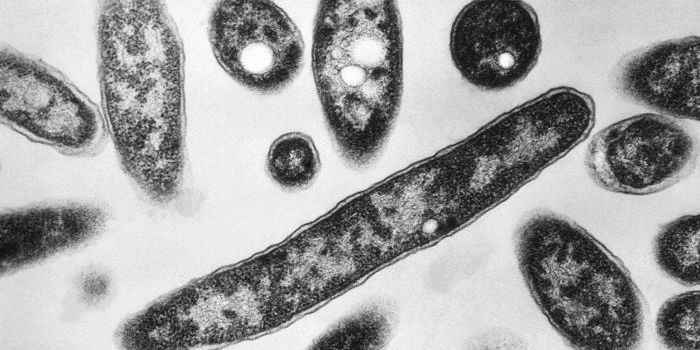Long COVID Risk Has Dropped 70% Over Course of Pandemic
SARS-CoV-2, the virus that causes COVID-19, emerged around December 2019 and caused a pandemic that was enveloping the world only a few months later. The virus caused millions of deaths and can also lead to a chronic condition known as long COVID in infected people. Scientists utilized developing mRNA-based vaccine technology to create COVID-19 vaccines, and many people received the initial doses of those vaccines. Although the virus continued to evolve and change, those vaccines have helped blunt the impacts of infection. A few moderately effective treatments such as the antiviral drug Paxlovid have also been created. Research has now shown that the risk of long COVID has declined significantly over the course of the pandemic, which the researchers suggested is due to changes in the virus as well as vaccines, and shifts in how we manage clinical cases. The findings have been reported in The New England Journal of Medicine.
"The research on declining rates of long COVID marks the rare occasion when I have good news to report regarding this virus," said senior study author and COVID-19 research expert, Ziyad Al-Aly, MD, a clinical epidemiologist at Washington University School of Medicine in St. Louis. "The findings also show the positive effects of getting vaccinated."
This study indicated that around 70 percent of the total reduction in long COVID risk is due to vaccination, and 30 percent to other changes.
Long COVID can have devastating impacts on a patient's quality of life, and may have a huge range of impacts including fatigue, brain fog, muscle aches, arrhythmia, and other symptoms that can affect almost every organ system including the brain, heart, kidneys, and gut. While estimates vary, as many as ten to twenty percent of people who had COVID-19 may end up with long COVID, meaning millions of people worldwide are affected. The CDC has estmated that as many as one in five US adults may be impacted.
Al-Aly reminds us that, "Long COVID is not over. We cannot let our guard down. This includes getting annual COVID vaccinations, because they are the key to suppressing long COVID risk. If we abandon vaccinations, the risk is likely to increase."
This study used a huge amount of health data from the U.S. Department of Veterans Affairs, and included information from 441,583 veterans with documented cases of COVID-19 and over 4.7 million uninfected individuals. The data was collected between March 1, 2020 and Jan. 31, 2022.
Statistical tools were used to analyze this data. The individuals were grouped into one of five categories: people who were unvaccinated and got the original SARS-CoV-2 strain in 2020; unvaccinated and infected with the Delta variant in 2021; or unvaccinated and Omicron variant-infected in 2022; another group was vaccinated but infected with Delta; the final group was also vaccinated but infected with Omicron. Long COVID rates one year after infection were determined for each group.
The rate of long COVID was highest in the unvaccinated individuals who got the original strain, at just over ten percent. About 9.5 percent of the unvaccinated patients who got Delta ended up with long COVID while 7.7 of the unvaccinated individuals with Omicron had long COVID.
However, individuals who were vaccinated (after the vaccines became available) had rates of long COVID of 5.3 and 3.5 percent during Delta and Omicron, respectively.
Al-Aly noted that people who opt to forgo vaccinations have about double the risk of developing long COVID if they are infected with SARS-CoV-2.
There are still significant numbers of vaccinated people getting long COVID too, added Al-Aly. A rate of 3.5 percent is not small when the number of people still getting infected are taken into consideration. "It will continue to add an already staggering health problem facing people across the world," said Al-Aly.
The work has also shown that during Omicron, symptoms affecting the heart, brain, kidney and lung decreased but metabolic function and gastrointesintal symptoms were more common.
"People tend to think of SARS-CoV-2 as a homogeneous virus. But each variant has its own fingerprint," Al-Aly said. "It's really good news that the risk has declined, but we know millions of people already have long COVID, and millions more will continue to get long COVID. We need to double down on our efforts to understand it so we can prevent suffering and treat affected individuals."
Sources: Washington University School of Medicine, New England Journal of Medicine









